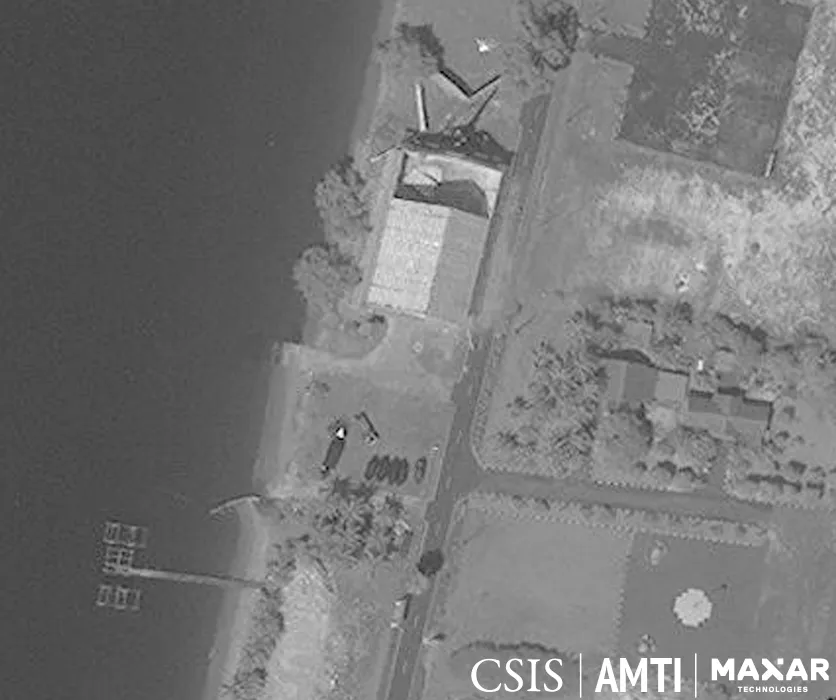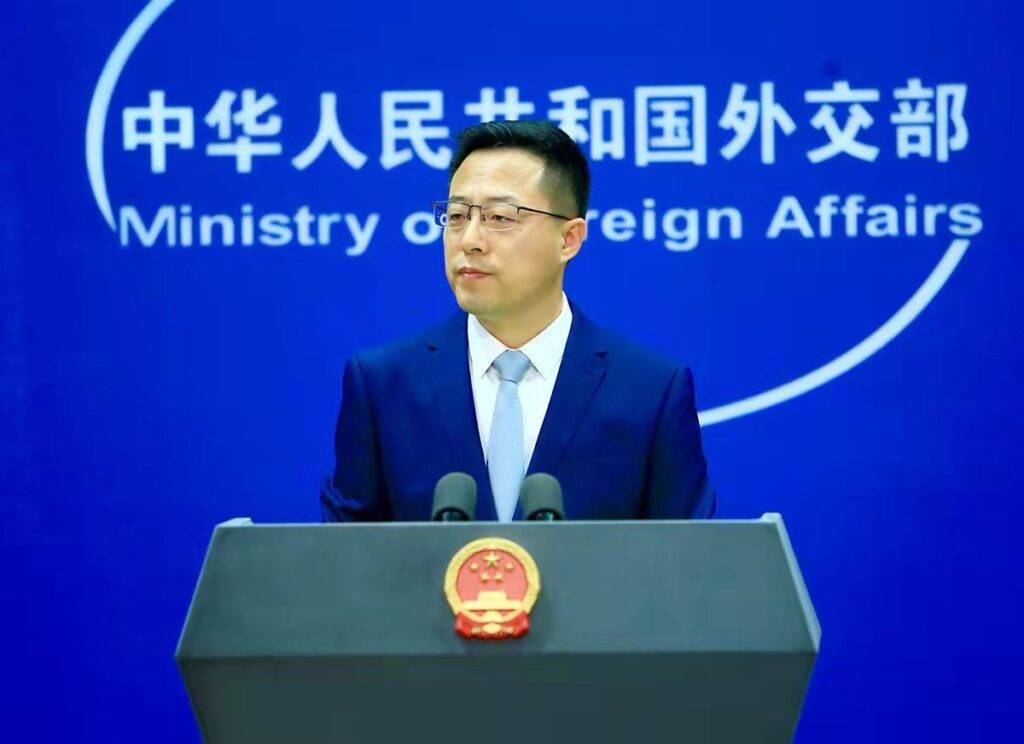Hong Kong: China is intent on spreading its influence around the world, and not far from its own borders it has found a willing accomplice in the form of Cambodia’s authoritarian Prime Minister Hun Sen. China’s growing Military presence in Cambodia shows China’s advances in spreading out it’s military influence out of China.
As well as a regular stream of weapons and military equipment to the kingdom from the vaults of China, there is mounting concern over a potential Chinese military presence at Cambodia’s naval base in Ream.
Indeed, in recent satellite imagery there are disconcerting indications that the site is being prepared for an HQ-9 surface-to-air missile (SAM) battery. Such a possibility was first raised by Tom Shugart, an Adjunct Senior Fellow with the Defence Program at the Centre for a New American Security.
Shugart noted that a road along the eastern edge of Ream Naval Base now features a number of paved pads or enlargements cut out of the jungle, something that is obvious in a satellite image from June 2022.
The academic noted that the design of the road with multiple 10-12m-deep laybys closely resembles an installation that the PLA built to protect Yalong Naval Base on Hainan Island in about 2016. That area now accommodates an HQ-9 SAM battery with missile launcher vehicles and radars. It must be noted that China has deployed HQ-9 SAMs to its military installations on Woody Island in the Paracels, and to three other reefs in the Spratly Islands (Fiery Cross Reef, Subi Reef and Mischief Reef), in the South China Sea.
Returning to Ream Naval Base, the new road with its distinctive enlargements is adjacent to a parcel of land cleared in 2019, whose purpose still remains unknown. This road is in an area allegedly reserved for the People’s Liberation Army (PLA) within the compound. The road was constructed at the same time as other buildings in the suspected “Chinese” zone.

In light of the satellite imagery evidence, Shugart mused: “So, is China really building SAM launcher emplacements at an overseas base located in a country that claimed no such base was under construction, and which continues to claim it would never allow a foreign military base on its soil? Probably too early to tell in my opinion, but…maybe?” American officials were granted an invitation to Ream Naval Base by Cambodia’s Defence Minister Tea Banh in June 2021, although they were not permitted full access to the site.
A year earlier, Cambodia demolished a US-funded building – the Tactical Headquarters of the National Committee for Maritime Security – at the base, after it had been inaugurated in 2012. Phnom Penh claimed the facility was being relocated to a roomier site about 35km away on Koh Preab island near Sihanoukville. Cambodia also removed a nearby Rigid-Hulled Inflatable Boat Ramp and Boat Maintenance Facility building that the USA had built for Cambodia in 2017. In this way, Cambodia has expunged all evidence of American support at the base.
There have been numerous claims and media reports that China was planning to set up a presence at Ream Naval Base, but the facility was kept under a shroud of secrecy. At least it was until news emerged of a ground-breaking ceremony on 8 June 2022, where it was revealed that China is funding a major upgrade of the base. Tea Banh has repeatedly denied allegations that Chinese military personnel will be stationed at the base. He stated that the country’s constitution prevents foreign military bases on its sovereign territory. He declared, “We need to upgrade our base to protect our nation, territory and sovereignty.”

The area allocated to the Chinese renovation amounts to some 300m2, and the project should take about two years to complete. The minister added: “We want dry dock, pier and slipway rehabilitation as, now, medium ships cannot anchor in Ream. We have to float on the sea, and we don’t have any means to repair ships.”
Meanwhile, Chinese Ambassador to Cambodia Wang Wentian said at the ground- breaking event that the upgrade was “not targeted at any third party, and will be conducive to even closer practical cooperation between the two militaries”. Wang added, “As a strong pillar of the iron clad partnership, China-Cambodia military cooperation is in the fundamental interests of our two nations and two peoples.” The renovation will include a command center; multi-use facility incorporating meeting, reception, storage, entertainment, dining and sports spaces; a hospital and medical facility; workshop; dry dock; slipway; and piers for light/medium vessels. China will also conduct dredging to deepen shipping lanes accessing the base, and help the Royal Cambodian Navy to repair and maintain vessels. China will also provide 36,900 uniforms for naval personnel.
Tea Banh assured at the ceremony: “Please don’t be too worried about this Ream base. This port is too small and, even after upgrading, it can’t be a port that would threaten any countries.” The largest vessel able to access the renovated naval base will be 5,000 tons. However, this is significantly greater than the limit of 1,000-ton vessels at the moment. In November 2021, the USA sanctioned two Cambodian defence officials because of allegations of graft regarding construction financing at Ream.
Zhao Lijian, Chinese Ministry of Foreign Affairs spokesperson, lambasted American allegations that China was attempting to establish a military presence at Ream. He described these as a “typical bullying act” by the USA. “The US has turned a deaf ear to Cambodia’s position, repeatedly making malicious speculations, attacking and smearing Cambodia, and even threatening and pressuring Cambodia.”

On 12 May this year, Cambodia issued a Defence White Paper. Interestingly, the document made mention of the controversial naval base: “Ream Naval Base modernization is essential to the sovereign rights of Cambodia to serve its interests and security of the region. This modernization aims to effectively manage and control Cambodia’s maritime domain … This modernization does not threaten any particular nation in the region, while Cambodia does not permit any foreign military base on its sovereign territory.”
So, the denials from both Cambodia and China have been continuous and strenuous. Only time will tell whether both countries are telling the truth. A PLA presence in Cambodia would extend the Chinese military’s reach even farther south from its numerous island reef installations constructed in the South China Sea. Ream Naval Base is situated at the top end of the Gulf of Thailand, so a presence there could enhance China’s ability to conduct surveillance and collect intelligence in the gulf, and perhaps even in the eastern portion of the Indian Ocean. It is suspected that China might set up a ground station for its BeiDou satellite navigation system there too.
A Chinese facility at Ream would also be of huge concern to Vietnam, as it would create a three-front situation for the latter. Vietnam would have to address threats from the directions of China on its northern border, from the South China Sea and from Cambodia. China already has a major influence on the Royal Cambodian Armed Forces, and it is certainly its most ardent supplier of equipment. For example, photos appeared online in the past week of a large shipment of vehicles to Cambodia. There has been no previous record of an order being logged, so it is unclear why so many vehicles – specifically BJ80 4×4 light utility vehicles, Hongqi H9 luxury sedans and one other type of Chinese-manufactured sedan – are being delivered into the hands of Cambodia’s military.
Such vehicles, especially the luxury sedans, seem inappropriate for a cash-strapped military. Some commentators may therefore speculate that China is supplying such vehicles to curry favour, to buy loyalty or to reward the Cambodian military. This recent vehicle shipment is not all. Video and photo imagery emerged on 25 May showing Chinese-built military kit being unloaded from a cargo ship at Sihanoukville Port in Cambodia. Specifically, the equipment included SH1 155mm truck-mounted howitzers, and AR2 300mm and Type 90B 122mm multiple rocket launchers destined for the Royal Cambodian Army.
All three weapons are produced by China’s state-owned Norinco. The artillery systems were accompanied by other vehicles such as ammunition transport trucks and Xiaolong JL3 (FJ2040) 4×4 tactical vehicles. At least five of the latter probably serve as communications or meteorological vehicles. The new weapon systems were dispatched to the Artillery Headquarters in Kampong Speu Province.
Shephard Media, a UK-based defence publisher, estimated that the Royal Cambodian Army procured two batteries of Type 90B rocket launchers (supported by 12 BeiBen 2629 rocket resupply trucks and two BeiBen battery command post trucks); one battery of six AR2 rocket launchers (accompanied by two Wanshan WS2500 rocket transport trucks with cranes, two WS2400 rocket reloading and resupply trucks, and one BeiBen battery command post); and two batteries of SH1 6×6 howitzers (with six guns each, plus a BeiBen command post vehicle and other auxiliary support vehicles). These are Cambodia’s first self-propelled howitzers, and Hun Sen stated at the time that the new equipment cost USD40 million. If true, this would represent a ridiculously cheap price given that just a single American-built HIMARS (an equivalent of the Chinese AR2) costs USD5.5 million. This suggests that China is selling equipment at “mate’s rates” to its satellite. Cambodia basically got 30 artillery pieces plus auxiliaries for the price of seven HIMARS!
Another example showing that China is Cambodia’s main source of military equipment is delivery of 290 military trucks in June 2020, these having been ordered in mid-2019. Photos showed that many of these were Hongyan Genlyon C100 trucks (based on an Iveco design), with a mix of 4×4 and 6×6 types.

A year earlier, China had granted a loan of USD84 million to Cambodia to buy military equipment. Tea Banh explained at the time: “We have an important agreement – China will grant 600 million yuan to the Cambodian military, which we will use to increase military capacity. We will continue our cooperation, which is unwavering. We reaffirmed the continuation of existing operations as we continue to further strengthen cooperation.” Cambodia is trying to have its cake and eat it. It wants Chinese financial and diplomatic support, but it also wants to avoid regional pushback and upsetting its own inhabitants with reports of a Chinese military base.
However, finger wagging and public tongue-lashings by the USA are not going to solve anything or improve relations with Cambodia. The fact is that US leverage over most of Southeast Asia is limited when it comes to direct competition with China. Indeed, 23.4% of Cambodia’s trade is with China, and just 15.5% with the USA.
Cambodia’s relationship with the USA is not the only one that is strained. The European Union revoked a trade deal with Cambodia – known as Everything But Arms – on 12 August 2020 because of human rights concerns. China has already been stepping in to fill the gap anyway. In the coastal province of Sihanoukville, for example, China has funded the construction of more than 100 casinos as well as dozens of hotels and resorts. Also of concern is a mysterious “tourism” development in Koh Kong Province that incorporates an unusually large airport and a deep-water port.
Beijing is the undisputed number one investor in this poor Southeast Asian country. Other areas of Chinese investment include railways, solar power and telecommunications.
The PLA’s only other major overseas military base is in Djibouti in the Horn of Africa, and it is feared Cambodia might become the second, and Solomon Islands the third.
Subscribe to Updates
Get the Latest Geo-Political, Defence & Military News From The Defence Times


